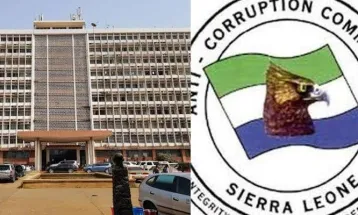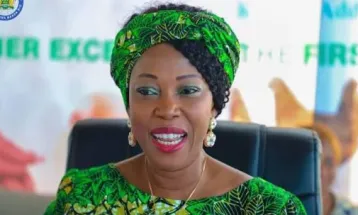
"Sierra Leone's Anti-Corruption Commissioner Advocates for Constructive Reform Amid Transparency International Report"
Sierra Leone's Anti-Corruption Commissioner, Francis Ben Kaifala, recently engaged with the findings of the Transparency International (TI) Corruption Perception Index (CPI) report concerning Sierra Leone. In his discourse, Kaifala acknowledged the report's imperfections while advocating for a constructive approach towards addressing corruption concerns rather than outright dismissal.
The CPI is a renowned tool that assesses countries based on perceived corruption levels. However, its methodology, which relies heavily on subjective perceptions and undisclosed sources, has drawn criticism, particularly from African nations. Kaifala conceded these limitations but stressed that the low rankings often reflect genuine challenges with corruption.
Despite the shortcomings, Kaifala urged African leaders to focus on reform efforts rather than disputing the CPI's credibility. He cited examples of countries like Seychelles and Rwanda, which have demonstrated significant progress in combating corruption and subsequently earned favorable rankings on the index.
Highlighting Sierra Leone's own advancements, Kaifala noted the country's improved ranking from 130th to 108th in recent years. He encouraged African nations to view the CPI as a catalyst for reform and to leverage it as a means to enhance transparency and accountability measures.
Kaifala emphasized the importance of not dismissing the CPI but rather using it as a tool to identify areas for improvement. He called for proactive engagement with TI and civil society organizations to address corruption effectively and enhance the continent's reputation on the global stage.
In summary, Kaifala's discourse underscored the significance of recognizing the realities of corruption in Africa while advocating for proactive measures to combat it. By acknowledging the CPI's limitations and focusing on constructive reform efforts, African nations can strive towards greater transparency and accountability, ultimately fostering sustainable development and progress.




















